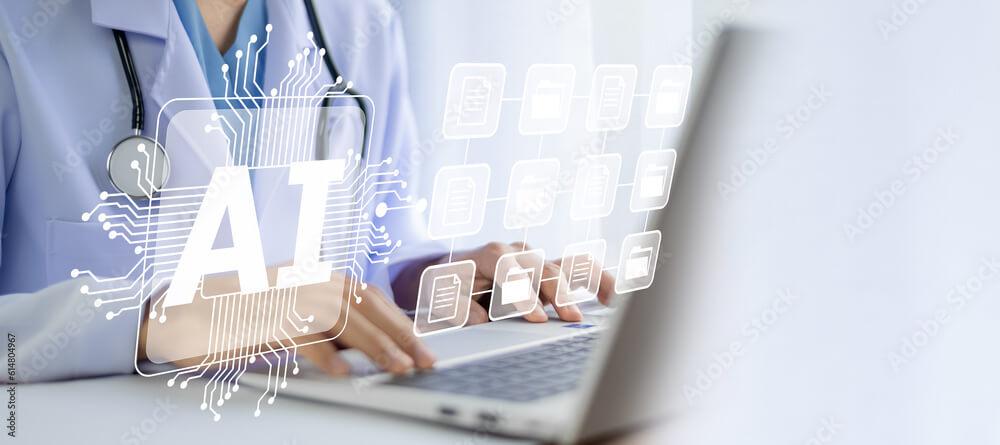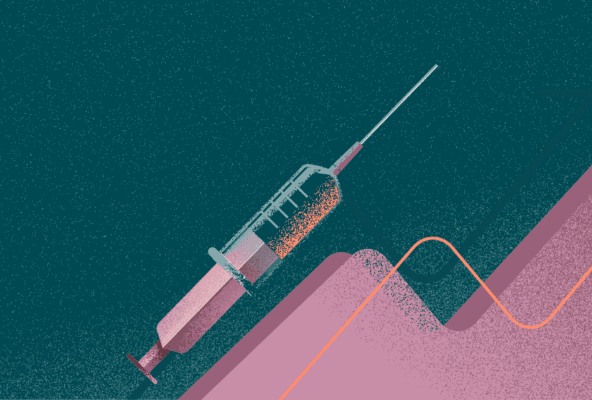Public opinions on ChatGPT’s healthcare projections revealed
A recent survey of 1,000 Americans conducted by Tebra reveals compelling insights into the public’s perceptions and hopes regarding AI in healthcare.
For this study, the AI-powered chatbot ChatGPT generated 9 predictions about the healthcare industry. We then asked Americans if they thought these predictions would come true within the next decade and if they wanted them to. Here are the results showing what people hope the future of healthcare will be like.
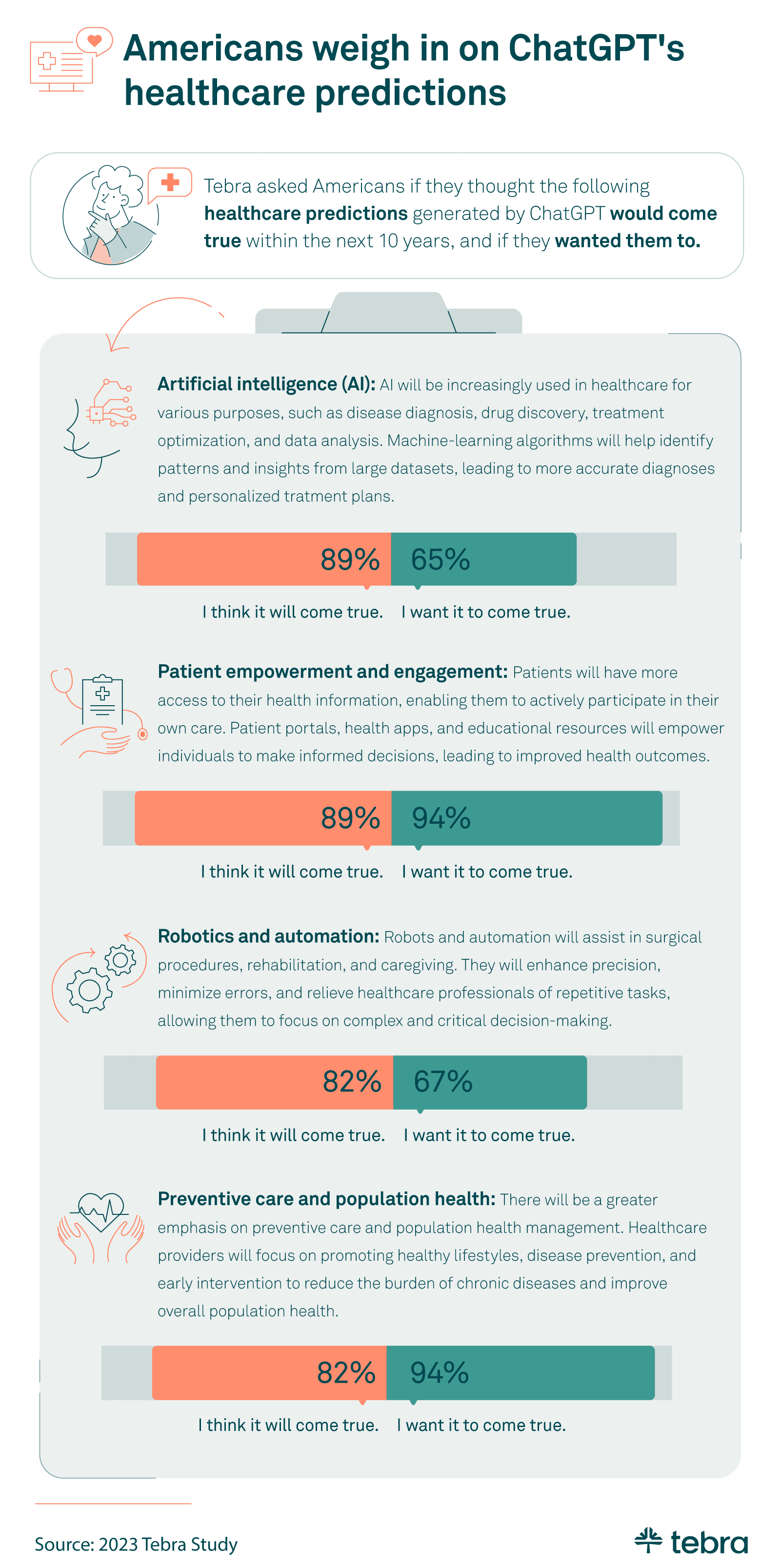
Key takeaways
- 94% of Americans want the healthcare system to focus on patient empowerment and engagement so they can actively participate in their own care.
- 94% of Americans hope there will be a greater emphasis on preventive care and population health within the next decade.
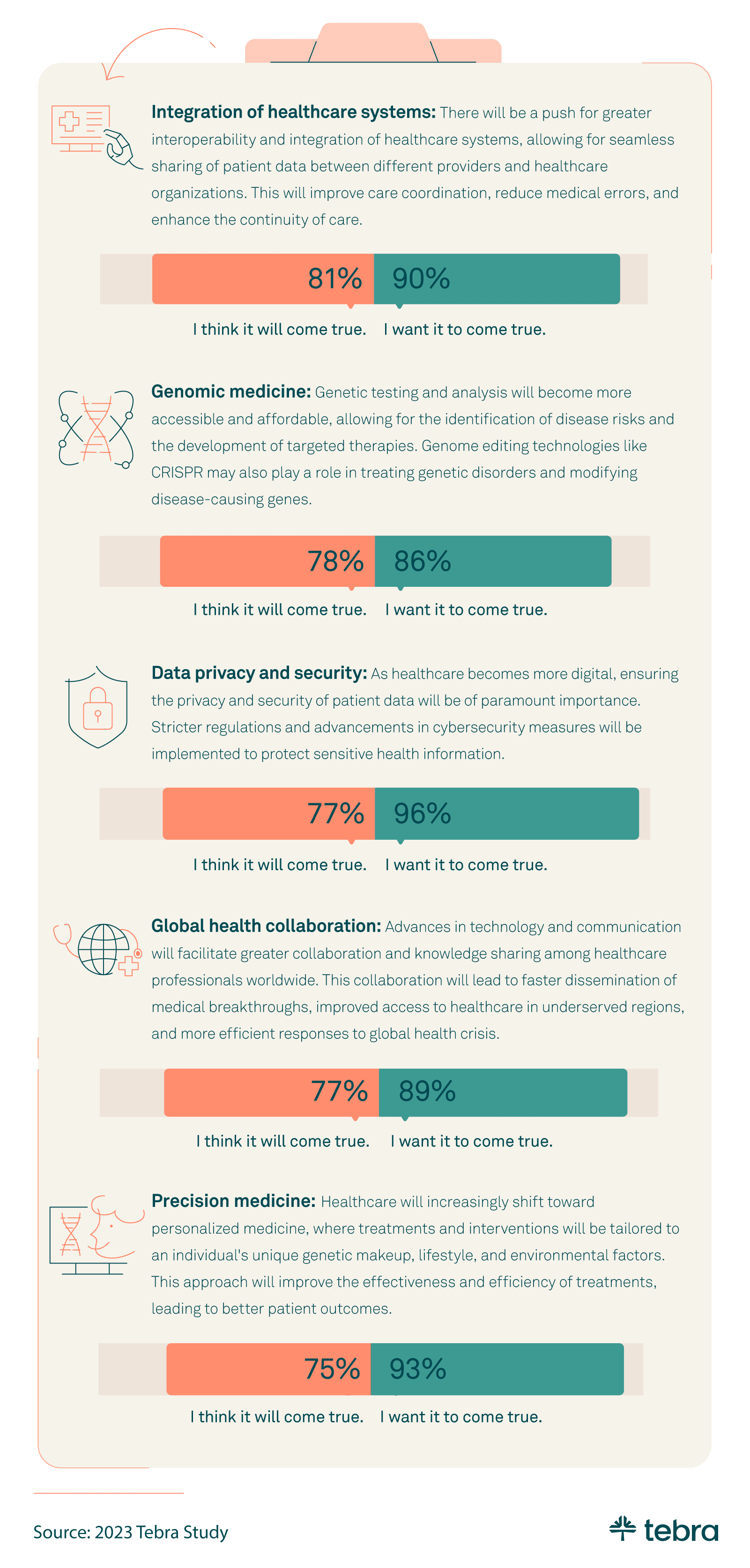
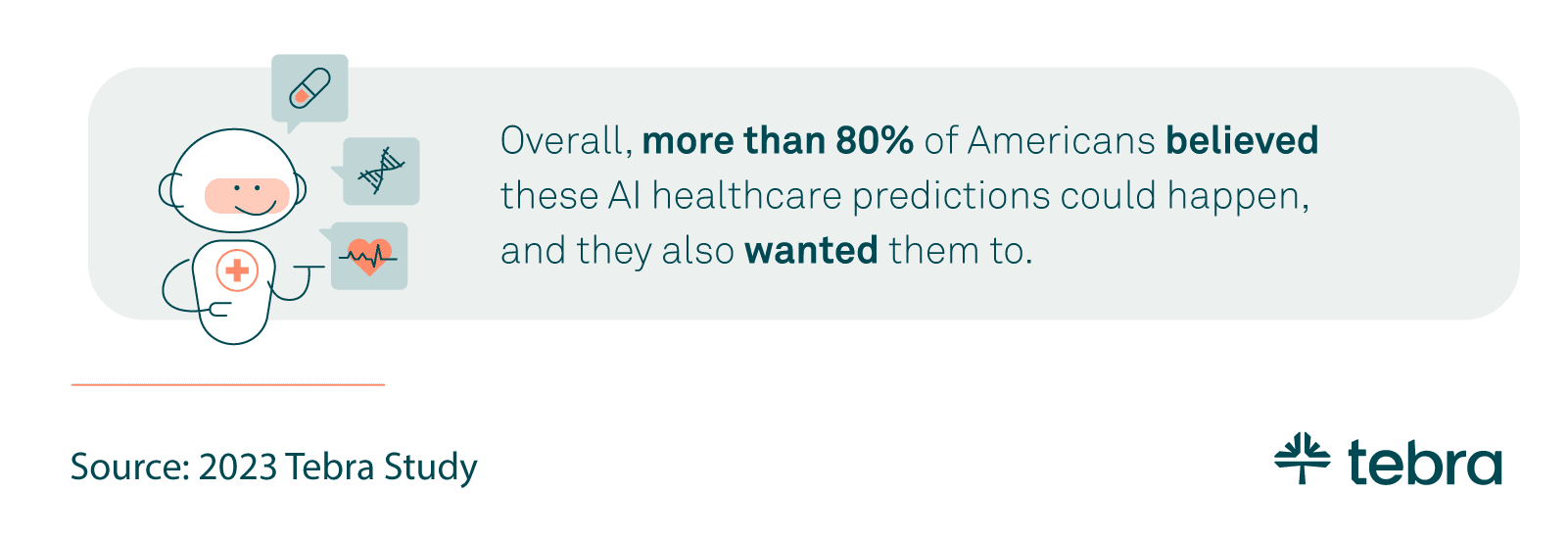
Summary of findings
- 96% of Americans want stricter data privacy and security regulations to protect sensitive healthcare information.
- 93% of Americans want healthcare providers to practice precision medicine, where they base treatments and interventions on a person’s genetics, lifestyle, and environment.
- Overall, more than 80% of Americans believe these AI healthcare predictions could happen, and they also want them to.
AI imagines the future of healthcare
The AI image generator ImagineAI.art generated the images shown below. Explore the visionary renderings of 3 healthcare spaces, including general practitioner’s office, an optometrist’s clinic, and dentist’s practice.



AI and healthcare through public perception
Dissatisfaction with the current state of the healthcare system in the U.S. is prevalent among Americans, with a staggering 80% expressing their discontent. Let’s see what else people think about American healthcare and the potential impact of AI technology.
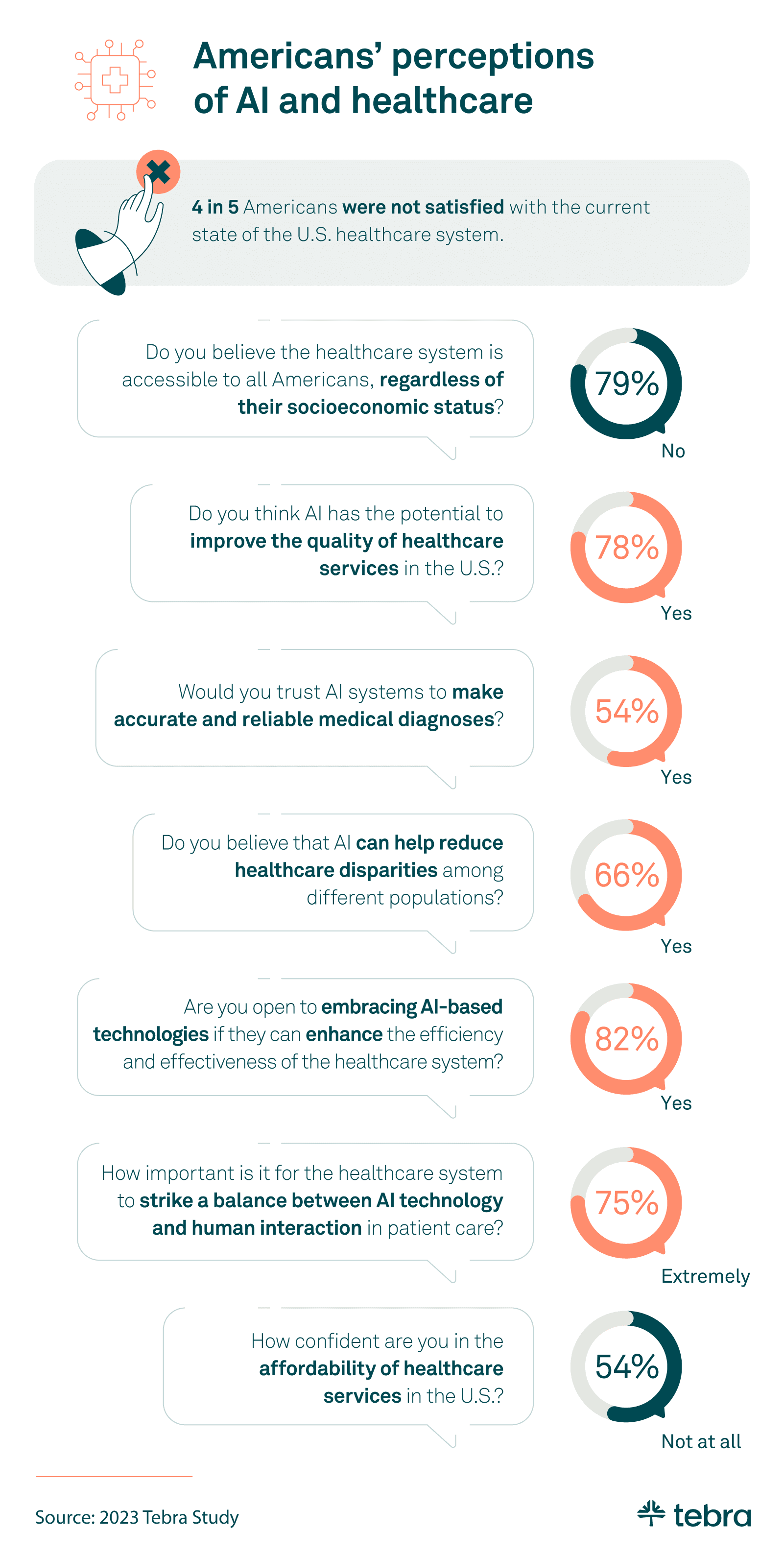
Key takeaways
- 4 in 5 Americans are not satisfied with the current state of the U.S. healthcare system.
- Nearly 80% do not believe healthcare is accessible to all Americans, regardless of their socioeconomic status.
- Over half (54%) feel healthcare services in the U.S. are unaffordable.
- Nearly 80% of Americans think AI has the potential to improve the quality of healthcare services in the United States.
- 82% are open to embracing AI as long as it improves the efficiency and effectiveness of the healthcare system.
- 66% believe AI can help reduce healthcare disparities among different populations.
- 54% of Americans trust AI systems to make accurate and reliable medical diagnoses.
- Generational breakdown:
- Baby boomers (51%)
- Gen X (52%)
- Millennials (57%)
- Gen Z (51%)
- Generational breakdown:
- 3 in 4 Americans believe it’s extremely important for the healthcare system to balance AI technology with human interaction in patient care.
A spark of hope
This study brings to light the widespread dissatisfaction among Americans with the existing healthcare system, emphasizing the need for change. But it also reveals a shared belief in the potential of AI to improve healthcare services. These insights provide valuable guidance for policymakers, healthcare providers, and technology developers to address the public’s concerns and needs, fostering a healthcare ecosystem that is accessible, efficient, and patient-centered.
Methodology
Tebra surveyed 1,000 Americans about their perception of AI in healthcare. Among the respondents, 50% were female, and 50% were male; 12% were baby boomers, 28% were Gen Xers, 52% were millennials, and 8% were Gen Zers. All predictions were generated using ChatGPT, and all images were generated using ImagineAI.
About Tebra
Our mission is to provide healthcare practitioners with the technology and support they need to unlock better healthcare for every patient. We've developed an automated practice platform to serve as the backbone of medical practice success.
Fair use statement
You may share this article on the potential of AI changing the U.S. healthcare system with others for noncommercial purposes. Remember to include a link back to this page to provide proper credit and access to the full content.
